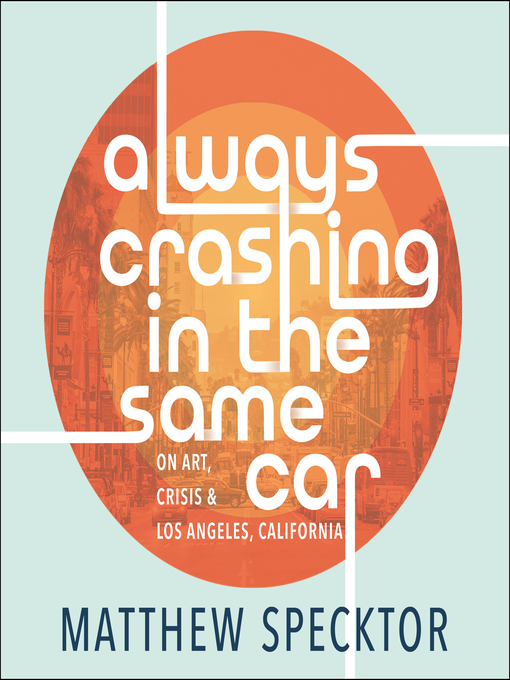Always Crashing in the Same Car
On Art, Crisis, and Los Angeles, California
-
Creators
-
Publisher
-
Release date
August 24, 2021 -
Formats
-
OverDrive Listen audiobook
- ISBN: 9781696606646
- File size: 261252 KB
- Duration: 09:04:16
-
-
Languages
- English
-
Reviews
-
Publisher's Weekly
Starred review from June 28, 2021
Specktor (American Dream Machine), a novelist and film critic, calls on both skills in this fascinating look at Hollywood, a place that’s “as much a notion as it is a neighborhood.” To better understand his “gnawing fascination” with his hometown and its promise “against some very steep odds for ‘success,’ ” he surveys a range of “marginal” Hollywood figures who were drawn to its flame, but “whose careers carry an aura of what might, also, have been.” These include film director Frank Perry, whose “modest” reputation obscured the “substantial” body of work of his partner and wife Eleanor Perry, thanks to the industry’s “institutional and overt sexism”—a situation that echoes the careers of Specktor’s film industry parents. Rock singer-songwriter Warren Zevon (and former paramour of writer Eve Babitz) may have been born in Chicago, but his music was conceived from “the mirage of Hollywood... like an all-night casino, in which every gesture has the force of desperation while remaining... fundamentally lighthearted.” Meanwhile, an illuminating essay on Specktor’s childhood idol, the novelist Thomas McGuane, considers how he left the “sheer California chaos” that both fueled and imperiled his writing for a quiet life in Montana. This enthralling work deserves a central spot on the ever-growing shelf of books about Tinseltown.
-
Formats
- OverDrive Listen audiobook
subjects
Languages
- English
Loading
Why is availability limited?
×Availability can change throughout the month based on the library's budget. You can still place a hold on the title, and your hold will be automatically filled as soon as the title is available again.
The Kindle Book format for this title is not supported on:
×Read-along ebook
×The OverDrive Read format of this ebook has professional narration that plays while you read in your browser. Learn more here.

